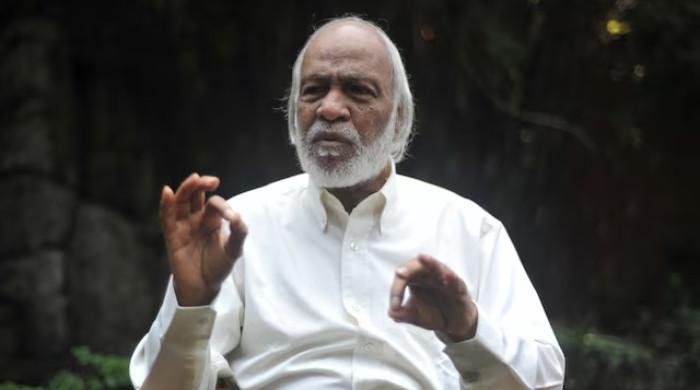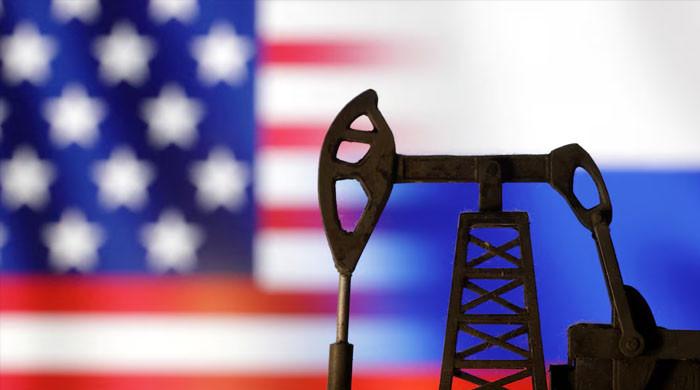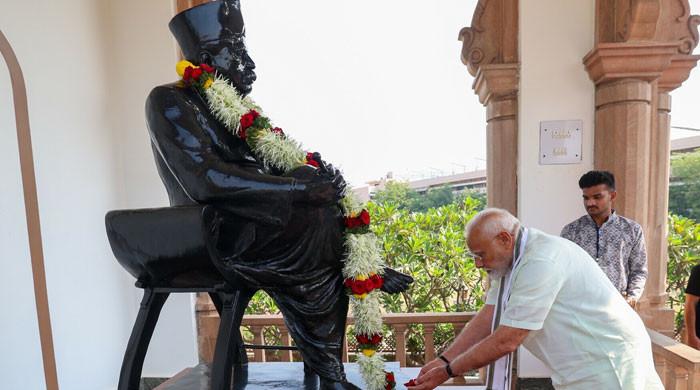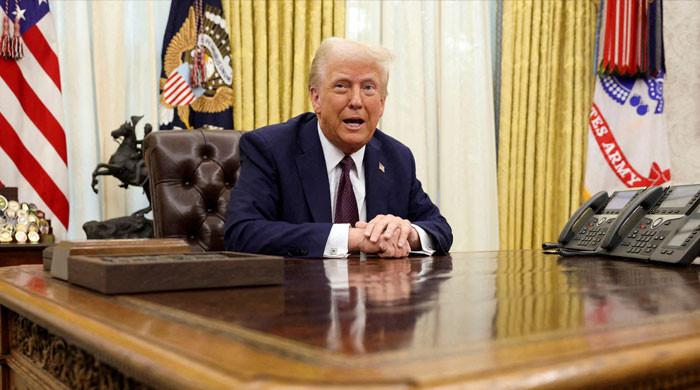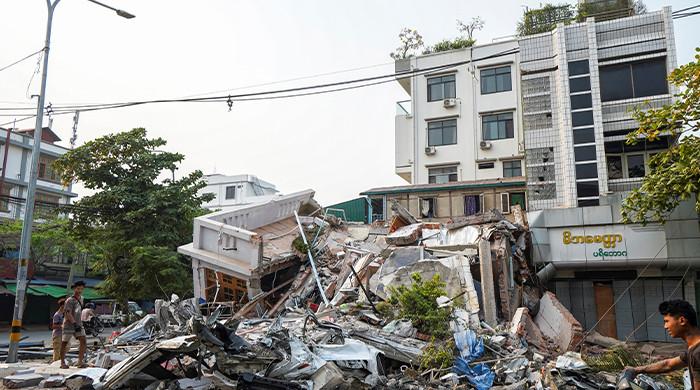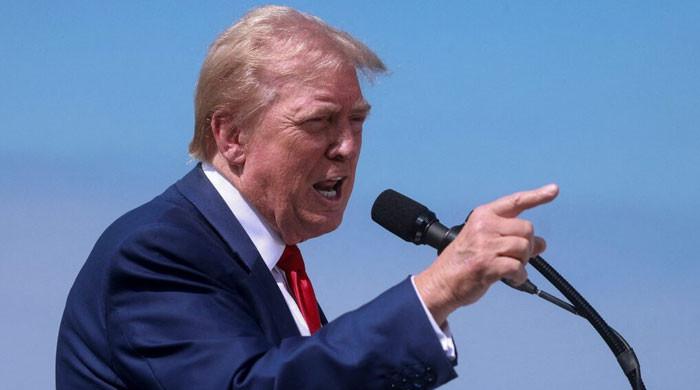COVID-19: UK govt providing help to citizens at home and stranded abroad
Thousands of Britons were left stranded in many parts of the world when governments introduced stringent coronavirus lockdowns
June 23, 2020
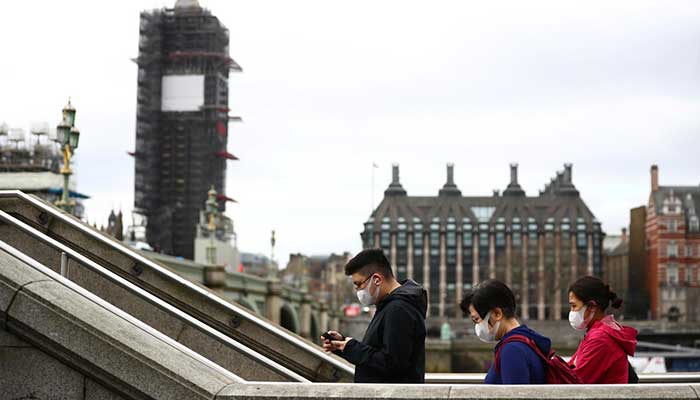
LONDON: The UK Government has been striving to help people since the outbreak of COVID-19 and the resulting lockdown made life difficult for the world.
Thousands of Britons were left stranded in many parts of the world when governments introduced stringent lockdowns and many found themselves trapped all over the globe, from all nationalities and backgrounds.
At home, the UK’s armed forces have built emergency hospitals, delivering vital supplies and flying critical patients from islands to hospitals on the mainland.
The UK’s Government’s Department for International Development (DfID) has been at the forefront of international efforts to help other countries deal with COVID-19 and aid has been provided to lots of developing countries.
At home, the UK Government has announced a package to protect jobs and support business across the UK during the coronavirus outbreak and also to help people return to work safely under the new safety and hygiene guidelines.
The UK has one of the largest networks of embassies of any country in the world. These UK government staff based all across the world have been helping UK citizens to get home during the global Coronavirus outbreak. The facility was extended to ordinary travellers stuck abroad and special needs patients who found themselves in an extremely difficult situation.
It’s estimated that more than 30,000 British travellers have now returned to the UK on 142 special Government chartered flights from 27 different countries and territories since the outbreak of coronavirus.
The Foreign Office has been in touch with the airline industry and host governments across the world to help bring back British travellers as part of a major plan announced by UK Foreign Secretary Dominic Raab on March 30. Up to £75 million have been made available for specially chartered flights to priority countries, focused on helping the most vulnerable travellers, confirmed a government spokesman.
The first flight to bring British travellers back to the UK following the outbreak, departed from Wuhan on 31 January, and the 30,000th passenger to return home to the UK landed on a special charter flight from Amritsar, northern India, on Saturday 9th May.
The UK government helped 200,000 passengers return from Spain on commercial routes, as well as passengers from Australia, Pakistan, Morocco and from Indonesia.
On 13 May 2020, the UK High Commission in Pakistan tweeted: “Since 4th April, over 25,000 people have flown to the UK from Pakistan, of which nearly 5,000 were on 21 UK government charter flights, from Islamabad, Lahore and Karachi.”
Speaking to this reporter, a spokesman of the FCO said that since the outbreak in Wuhan, the UK govt has arranged for the return of an estimated 1.3 million people via commercial routes.
The spokesman said: “For example, we worked with international partners to keep Doha Airport open, allowing more than 59,000 British travellers to transit through Qatar in March and April. We have helped more than 20,000 passengers home from Pakistan on commercial flights, 7,000 from Indonesia, and over 4,000 from New Zealand. Air Mauritius ran a special flight from Mauritius on 19 May with over 150 British travellers on board and Sri Lankan Airlines plans more flights from Sri Lanka before the end of May.”
The spokesman explained that the UK government has brought home over 33,900 people on 163 flights organised by the Foreign Office from 32 countries and territories. This includes over 14,400 British travellers from India on 64 flights since 8 April; over 4,400 on 21 flights from Pakistan since 21 April; over 2,100 British travellers from Bangladesh since 21 April; and over 550 British travellers from Nepal between 8-17 April.
The spokesman said that during this crisis, the government has provided assistance to vulnerable non-British UK residents with indefinite leave to remain in the UK where possible. “This goes beyond what we usually do since our consular assistance is for UK nationals.”
The spokesman added: “We published more than 1,000 travel advice updates in March and have already updated our advice more this year than in the whole of 2019. In March call volumes increased from a 7 day average of 6923 (weekly volume March 19) to a peak over 47,500 inbound calls in 7 days (w/c 17/3 and again 23/3). The single-day peak of almost 15,000 calls on 24 March. A large number of our communications was done through social media channels as it was the quickest means of reaching large numbers. But we have also increased our capacity for handling complex cases through FCO Contact centres. We have deployed an additional 40 FCO staff in the UK to add to the 30 staff we already have taking escalations in the UK. This has taken our capacity to handle escalations to over 100 when combined with our permanent contact centre staff based in Malaga and Ottawa.”





